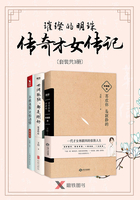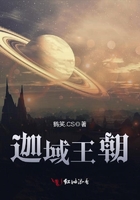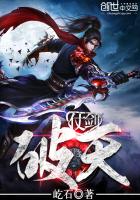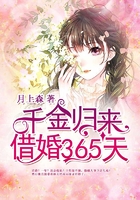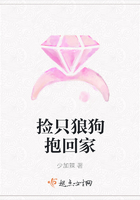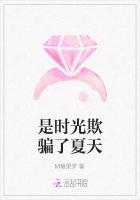As my mother had divorced my father when I was a baby in arms, I had never seen him。 Once, when I asked one of my aunts whether I had ever had a father, she replied,“Your father was a demon who ruined your mother's life。”After that I always imagined him as a demon in a picture book, with horns and a tail, and when other children at school spoke of their fathers, I kept silent。
When I was seven years old, we were living in two very bare rooms on the third foor, and one day I heard the front door bell ring, and, on going out into the hall to answer it, I saw a very good?looking gentleman in a top hat, who said:
“Can you direct me to Mrs。 Duncan's apartment?”
“I am Mrs。 Duncan's little girl,”I replied。
“Is this my Princess Pug?”said the strange gentleman。(That had been his name for me when I was a baby。)
And suddenly he took me in his arms and covered me with tears and kisses。 I was very much astonished at this proceeding, and asked him who he was。To which he replied with tears,“I am your father。”
I was delighted at this piece of news, and rushed in to tell the family。
“There is a man there who says he is my father。”
My mother rose, very white and agitated, and, going into the next room, locked the door behind her。 One ofmy brothers hid under the bed and the other retired to a cupboard, while my sister had a violent fit of hysterics。
“Tell him to go away, tell him to go away,”they cried。
I was much amazed, but, being a very polite little girl, I went into the hall and said:
“The family are rather indisposed, and cannot receive to?day,”at which the stranger took me by the hand and asked me to come for a walk with him。
We descended the stairs into the street, I trotting by his side in a state of bewildered enchantment to think that this handsome gentleman was my father, and that he had not got horns and a tail, as I had always pictured him。
He took me to an ice?cream parlour and stufed me with ice?cream and cakes。I returned to the family in a state of the wildest excitement and found them in a terribly depressed condition。
“He is a perfectly charming man, and he is coming tomorrow to give me more ice?cream,”I told them。
But the family refused to see him, and after a time he returned to his other family at Los Angeles。
After this I did not see my father for some years, when he suddenly appeared again。 This time my mother relented sufficiently to see him, and he presented us with a beautiful house which had large dancing rooms, a tennis court, a barn, and a windmill。This was due to the fact that he had made a fourth fortune。In his life he had made three fortunes and lost them all。This fourth fortune also collapsed in course of time, and with it the house, etc。,disappeared。Butfor a few years we lived in it, and it was a harbour of refuge between two stormy voyages。
Before the collapse I saw my father from time to time, and learned to know that he was a poet, and to appreciate him。 Among other poems of his was one which was in a way a prophecy of my entire career。
I am relating something of the history of my father because these early impressions had a tremendous efect on my after life。 On the one hand I was feeding my mind with sentimental novels, while on the other I had a very practical example of marriage before my eyes。All my childhood seemed to be under the black shadow of this mysterious father of whom no one would speak, and the terrible word divorce was imprinted upon the sensitive plate of my mind。As I could not ask anyone for the explanation of these things, I tried to reason them out for myself。Most of the novels I read ended in marriage and a blissfully happy state of which there was no more reason to write。But in some of these books, notably George Eliot's Adam Bede, there is a girl who does not marry, a child that comes unwanted, and the terrible disgrace which falls upon the poor mother。I was deeply impressed by the injustice of this state of things for women, and, putting it together with the story of my father and mother
I decided, then and there, that I would live to fight against marriage and for the emancipation of women, and for the right for every woman to have a child or children as it pleased her, and to uphold her right and her virtue。These may seem strange ideas for a little girl oftwelve years old to reason out, but the circumstances of my life had made me very precocious。I enquired into the marriage laws, and was indignant to learn of the slavish condition of women。I began to look enquiringly at the faces of the married women friends of my mother, and I felt that on each was the mark of the green?eyed monster and the stigmata of the slave。I made a vow then and there that I would never lower myself to this degrading state。This vow I always kept, even when it cost me the estrangement of my mother and the miscomprehension of the world。One of the fine things the Soviet Government has done is the abolishment of marriage。With them two people sign their names in a book, and under the signature is printed:“This signature involves no responsibility whatever on the part of either party, and can be annulled at the pleasure of either party。”Such a marriage is the only convention to which any free?minded woman could consent, and is the only form of marriage to which I have ever subscribed。
At the present time I believe my ideas are more or less those of every free?spirited woman, but twenty years ago my refusal to marry, and my example in my own person of the right of the woman to bear children without marriage, created a considerable misunderstanding。Things have changed, and there has been so great a revolution in our ideas that I think today every intelligent woman will agree with me that the ethics of the marriage code are an impossible proposition for a free?spirited woman to accede to。If, in spite of this, intelligent women continue to marry, it is simply because they have not the courage to stand up for their convictions, and if you will read through a list of the divorces of the last ten years you will realise that what I say is true。Many women to whom I have preached the doctrine of freedom have weakly replied,“But who is to support the children?”It seems to me that if the marriage ceremony is needed as a protection to ensure the enforced support of children, then you are marrying a man who, you suspect, would, under certain conditions, refuse to support his children, and it is a pretty low?down proposition。For you are marrying a man whom you already suspect of being a villain。But I have not so poor an opinion of men that I believe the greater percentage of them to be such low specimens of humanity。
It was owing to my mother that, as children, our entire lives were permeated with music and poetry。 In the evenings she would sit at the piano and play for hours, and there were no set times for rising or going to bed, nor any discipline in our lives。On the contrary, I think my mother quite forgot about us, lost in her music or declaiming poetry, oblivious of all around her。One of her sisters, too, our Aunt Augusta, was remarkably talented。She often visited us and would have performances of private theatricals。She was very beautiful, with black eyes and coal black hair, and I remember her dressed in black velvet“shorts”as Hamlet。She had a beautiful voice, and mighthave had a great career as a singer had it not been that everything relating to the theatre was looked upon by her father and mother as pertaining to the Devil。I realise now how her whole life was ruined by what would be difficult to explain nowadays—the Puritan spirit of America。The early settlers in America brought with them a psychic sense which has never been lost entirely。And their strength of character imposed itself upon the wild country, taming the wild men, the Indians, and the wild animals in a remarkable manner。But they were always trying to tame themselves as well, with disastrous results artistically!
From her earliest childhood my Aunt Augusta had been crushed by this Puritan spirit。 Her beauty, her spontaneity, her glorious voice, were all annihilated。What was it that made men at that time exclaim,“I would rather see my daughter dead than on the stage?”It is almost impossible to understand this feeling nowadays, when great actors and actresses are admitted to the most exclusive circles。
I suppose it was due to our Irish blood that we children were always in revolt against this Puritanical tyranny。
One of the first effects of our removal to the large house my father gave us was the opening of my brother Augustin's theatre in the barn。 I remember he cut a piece out of the fur rug in the parlour to use as a beard for Rip Van Winkle, whom he impersonated in so realistic a manner that I burst into tears as I watched him from a cracker box in the audience。We were all very emotional and refused to be repressed。
The little theatre grew and became quite celebrated in the neighbourhood。 Later on this gave us the idea of making a tournée on the coast。I danced, Augustin recited poems, and afterwards we acted a comedy in which Elizabeth and Raymond also took part。Although I was only twelve years old at the time, and the others still in their teens, these tournées down the coast at Santa Clara, Santa Rosa, Santa Barbara, and so forth, were very successful。
The dominant note of my childhood was the constant spirit of revolt against the narrowness of the society in which we lived, against the limitations of life and a growing desire to fly eastward to something I imagined might be broader。 How often I remember haranguing the family and my relations, and always ending with,“We must leave this place;we shall never be able to accomplish anything here。”
Of all the family I was the most courageous, and, when there was absolutely nothing to eat in the house, I was the volunteer who went to the butcher and through my wiles induced him to give me mutton chops without payment。 I was the one sent to the baker to entice him to continue credit。I took a real adventurous pleasure in these excursions, especially when I was successful, as I generally was。I used to dance all the way home with joy, bearing the spoils and feeling like a highwayman。This was a very goodeducation, for, from learning to wheedle ferocious butchers, I gained the technique which enabled me afterwards to face ferocious managers。
I remember once, when I was quite a baby, finding my mother weeping over some things which she had knitted for a shop and which had been refused。 I took the basket from her, and, putting one of the knitted caps on my head and a pair of knitted mittens on my hands, I went from door to door and peddled them。I sold everything and brought home twice the money mother would have received from the shop。
When I hear fathers of families saying they are working to leave a lot of money for their children, I wonder if they realise that by so doing they are taking all the spirit of adventure from the lives of those children。 For every dollar they leave them makes them so much the weaker。The finest inheritance you can give to a child is to allow it to make its own way, completely on its own feet。Our teaching led my sister(and me)into the richest houses in San Francisco。I did not envy these rich children;on the contrary, I pitied them。I was amazed at the smallness and stupidity of their lives, and, in comparison to these children of millionaires, I seemed to be a thousand times richer in everything that made life worth while。
Our fame as teachers increased。 We called it a new system of dancing, but in reality there was no system。I followed my fantasy and improvised, teaching any pretty thing that came into my head。One of my first danceswas Longfellow's poem,“I shot an arrow into the air。”I used to recite the poem and teach the children to follow its meaning in gesture and movement。In the evenings my mother played to us while I composed dances。A dear old lady friend who came to spend the evening with us very often, and who had lived in Vienna, said I reminded her of Fanny Elssler, and she would recount to us the triumphs of Fanny Elssler。
“Isadora will be a second Fanny Elssler,”she would say, and this incited me to ambitious dreams。She told my mother to take me to a famous ballet teacher in San Francisco, but his lessons did not please me。When the teacher told me to stand on my toes I asked him why, and when he replied“Because it is beautiful,”I said that it was ugly and against nature, and after the third lesson I left his class, never to return。The stif and commonplace gymnastics which he called dancing only disturbed my dream。I dreamed of a diferent dance。I did not know just what it would be, but I was feeling out towards an invisible world into which I divined I might enter if I found the key。My art was already in me when I was a little girl, and it was owing to the heroic and adventurous spirit of my mother that it was not stifed。I believe that whatever the child is going to do in life should be begun when it is very young。I wonder how many parents realise that by the so?called education they are giving their children they are only driving them into the commonplace, and depriving them of any chance of doing anything beautiful or original。But I suppose this must be so, or who would supply us with thethousands of shop and bank clerks, etc。,who seem to be necessary for organised civilised life?
My mother had four children。 Perhaps by a system of coercion and education she might have turned us into practical citizens, and sometimes she lamented,“Why must all four be artists and not one practical?”But it was her own beautiful and restless spirit that made us artists。My mother cared nothing for material things, and she taught us a fine scorn and contempt for all such possessions as houses, furniture, belongings of all kinds。It was owing to her example that I have never worn a jewel in my life。She taught us that such things were trammels。
After I left school I became a great reader。 There was a public library in Oakland, where we then lived, but no matter how many miles we were from it, I ran or danced or skipped there and back。The librarian was a very wonderful and beautiful woman, a poetess of California, Ina Coolbrith。She encouraged my reading, and I thought she always looked pleased when I asked for fne books。She had very beautiful eyes that glowed with burning fre and passion。Afterwards I learnt that at one time my father had been very much in love with her。She was evidently the great passion of his life, and it was probably by the invisible thread of circumstance that I was drawn to her。
At that time I read all the works of Dickens, Thackeray, Shakespeare, and thousands of novels besides, good and bad, inspired books and trash—I devoured everything。 I used to sit up at night, reading until dawn by the lightof candles'ends which I had collected during the day。I also started to write a novel, and at this time I edited a newspaper, all of which I wrote myself—editorials, local news, and short stories。In addition I kept a journal, for which I invented a secret language, for at this time I had a great secret。I was in love。
Besides the classes of children, my sister and I had taken some older pupils, to whom she taught what was then called“Society dancing,”the valse, mazurka, polka, and so forth, and among these pupils were two young men。 One was a young doctor and the other a chemist。The chemist was amazingly beautiful and had a lovely name—Vernon。I was eleven years old at the time, but looked older, as I had my hair up and my dresses long。Like the heroine of Rita, I wrote in my journal that I was madly, passionately in love, and I believe that I was。Whether Vernon was conscious of it or not, I do not know。At that age I was too shy to declare my passion。We went to balls and dances, where he danced almost every dance with me, and afterwards I sat up until the small hours recounting to my journal the terrifying thrills which I felt,“floating,”as I put it,“in his arms。”During the day he worked in a drug store in the main street, and I walked miles just to pass the drug store once。Sometimes I mustered up enough courage to go in and say,“How do you do?”I also found out the house where he lodged, and I used to run away from home in the evening to watch the light in his window。This passion lasted two years, and I believed that I suffered quite intensely。Atthe end of the two years he announced his approaching marriage to a young girl in Oakland society。I confined my agonised despair to my journal, and I remember the day of the wedding and what I felt as I saw him walking down the aisle with a plain girl in a white veil。After that I never saw him。
The last time I danced in San Francisco there came into my dressing?room a man with snow?white hair, but looking quite young and extremely beautiful。I recognised him at once。It was Vernon。I thought that after all these years I might tell him of the passion of my youth。I thought he would be amused, but he was extremely frightened, and talked about his wife, the plain girl, who it seems is still alive, and from whom his affections have never deviated。How simple some people’s lives can be!
That was my first love。 I was madly in love, and I believe that since then I have never ceased to be madly in love。At the present time I am convalescing from the last attack, which seems to have been violent and disastrous。I am, so to speak, in a convalescent entr'acte before the final act, or can it be that the show is over?I might publish my photographs and ask the readers what they think。





